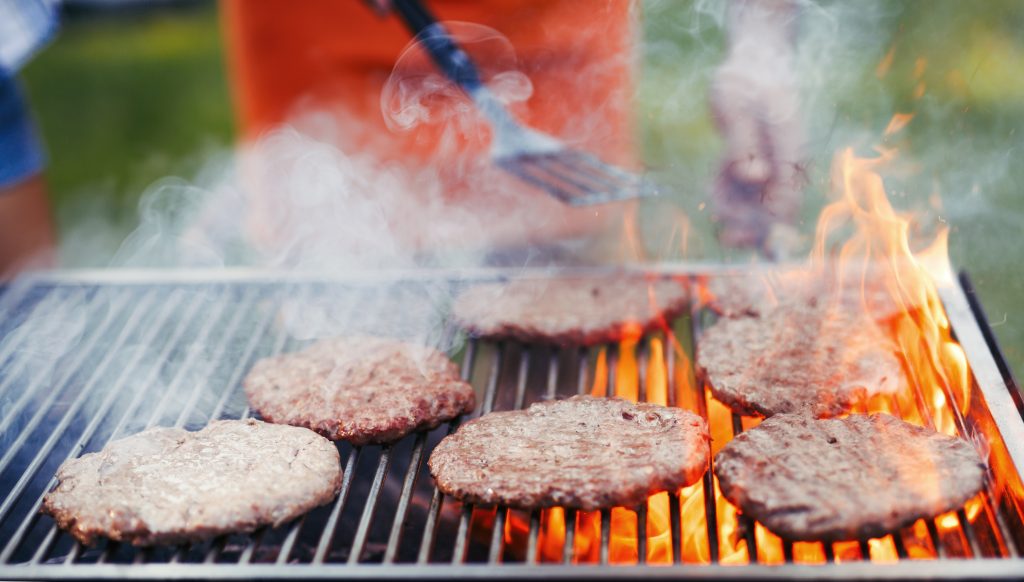You can find the best plan for you by looking at the latest rankings, which include everything from the traditional Mediterranean diet to the increasingly popular keto diet.
Now that January has started, also known as “diet season,” the rankings are in: The best diets for 2022 were just put out by U.S. News & World Report. Who wins? The Mediterranean diet is the best out of 40 diets for the fourth year in a row. Other popular diets, such as the ketogenic diet (“keto”), modified keto, and the Dukan diet, were ranked 37 (tied) and 39, respectively, on the list of the best diets overall.
How the list of the best diets for 2022 compares to the list for 2021
The Mediterranean diet beat the Dietary Approaches to Stop Hypertension (DASH) diet on the overall list in 2022, just like it did the three years before. (In 2018, they were both at the top.) Here’s why the Mediterranean diet got the highest marks from the panel of nutritionists, dietary consultants, and doctors: It gets points (a total of 4.2 out of 5) for being good for your health. In fact, the Mediterranean diet also won in other categories, such as Best Plant-Based Diets, Best Diabetes Diets, Best Heart-Healthy Diets (tied with the Ornish diet), Best Diets for Healthy Eating, and Easiest Diets to Follow.
The Mediterranean diet focuses on eating whole grains, fruits and vegetables, legumes, nuts and seeds, olive oil, and some lean meat and fish. In a similar way, the second-place DASH diet is a plan for lowering blood pressure that includes vegetables, fruits, low-fat dairy, whole grains, lean meats, and nuts. It also follows sodium guidelines to help lower hypertension (high blood pressure), but you can still benefit from this way of eating even if your blood pressure is normal.
The DASH diet is similar to the flexitarian diet, which is also based on plant-based foods and is sometimes called “semi-vegetarian.” No matter what plan you choose, one thing is clear: eating mostly plant-based foods is one of the healthiest things you can do. A May 2017 article in the Journal of Geriatric Cardiology says that people who eat a plant-based diet are less likely to get type 2 diabetes and heart disease. A study published in the Journal of the American Heart Association in August 2019 found that people who ate mostly plant-based foods had up to a 25% lower risk of dying from any cause than those who didn’t eat this way.
Still, the rankings haven’t changed all that much since 2021. The top three diets stay where they are. The top-rated diets for best overall diet, best diet for weight loss, best diet for diabetes, and best heart-healthy diets are mostly Mediterranean, flexitarian, and DASH according to Kelly Kennedy, RD, staff nutritionist at Everyday Health. They all put fruits and vegetables first, along with other healthy foods like whole grains, lean proteins, and healthy fats. What I love is that the same group of diets were also rated the easiest to follow. This means that they’re easier than most other diets, and you’ll get the most health benefits from choosing one of these.
The best diets of 2022 will still be the Mediterranean Diet, the DASH Diet, and the Flexitarian Diet.
Doctors also recommend all three diets because they know they are good for your health. Erin Palinski-Wade, RD, CDCES, the author of Belly Fat Diet for Dummies says the Mediterranean eating plan doesn’t have a set number of calories or rules about how much to eat, so it can work for almost anyone. Eating this way may help you lose weight, but the main goal of this way of eating is to improve your health, like your heart health.
For example, a study published in April 2016 in the American Journal of Medicine found that the Mediterranean diet was better than low-fat diets at helping people lose weight and improve their heart health after one year. A systematic review published in September 2020 in Diabetes, Metabolic Syndrome and Obesity: Targets and Therapy found that switching from an omnivore diet to a plant-based diet helped most people lose weight. This may be because people ate more fiber and swapped animal proteins for more plant proteins.
In a study of almost 26,000 women that was published in December 2018 in JAMA Network Open, those who closely followed the Mediterranean diet had a 28% lower risk of heart disease than those who didn’t. This is likely because the diet helped reduce inflammation, improve insulin function, and lower body mass index (BMI). A large review published in February 2019 in the journal Circulation Research said that there is “large, strong, and consistent” evidence that the Mediterranean diet can lower the risk of heart disease and stroke.
The National Heart, Lung, and Blood Institute (NHLBI) paid for three studies on the health benefits of DASH. They found that, compared to diets like the Standard American Diet (SAD), DASH can lower blood pressure and LDL, or “bad,” cholesterol levels and help people lose weight. The Office of Disease Prevention and Health Promotion says that the SAD is high in salt, added sugar, and saturated fat. Also, a study that came out in September 2018 in the journal Medicine looked at 12 studies with more than 500,000 people. Researchers found that people who closely followed the DASH diet were 12 percent less likely to have a stroke than those who were less careful about what they ate.
A review of 25 studies on the flexitarian diet showed that it helps people lose weight, lowers blood pressure, and lowers the risk of getting type 2 diabetes. This study was published online in January 2017 in the journal Frontiers in Nutrition. Kennedy says that its place at No. 3 is well-earned. She says that the flexitarian diet is a simple way for anyone to cut down on calories and saturated fat without having to completely change their eating habits. This makes it easier to stick with this diet over the long term. It also makes it easier for you to eat more fruits and vegetables, which is very important for a healthy diet.
The best diets for weight loss, according to U.S. News
Some people don’t like the list because it includes fad diets, which are usually hard to stick to and sometimes unhealthy. But Kennedy says that a list of many different diets can be helpful to consumers. She says that registered dietitians help people come up with eating plans that are based on healthy whole foods, but they also get asked all the time about trendy diets. She says that it’s important for people to know that these rankings don’t recommend any fad diets. Instead, they’re a way to figure out if a diet you’re thinking about is a good fit for you or if there’s a healthier option that would be easier to stick to in the long run. Also, Kennedy says that some of the healthiest diets might not be as good for weight loss or losing weight quickly because they were made with health in mind, not weight loss.
If you want to lose weight, you might do better with flexitarian, volumetrics, or WW (formerly Weight Watchers). The vegan diet came in fourth, followed by Jenny Craig, Mayo Clinic, Ornish, raw food, and vegetarian diets, which all tied for fifth place. She’s seen WW help a lot of people lose weight in a healthy way. Again, as with all the best diets, the focus is on eating a lot of fruits and vegetables. She also says that on this diet, you can eat even desserts. This makes it easier to keep up in the long run without feeling like you’re missing out. She also says that making fruits and vegetables “free” on the points system could help people switch to a more plant-based diet.
The fourth-place vegan diet gets rid of all animal foods, like meat and dairy, and moves toward eating more plants. It was praised for being filling because it was made with high-fiber foods like vegetables and whole grains, which are part of a vegan diet. Because of this, it usually has less calories, which can help people lose weight.
One popular diet, Noom, came in at number 13 on the list of the best diets overall and number 20 on the list of the best diets for losing weight, even though it is known as a weight loss diet. Palinski-Wade says, Noom focuses on changing behavior and educating people about nutrition, which I think is a good way to make changes that last. She says that the app’s community support, positive reinforcement, and accountability can help make long-term changes.
Which Fad Diets Didn’t Make the List in 2021?
Some of the most popular diets today, on the other hand, didn’t do as well. About to fall? The paleo diet (No. 30), the raw food diet (No. 32), which includes the raw vegan diet, the Atkins diet (No. 34), which is a low-carb diet like keto, Whole30 (No. 35), keto, and modified keto (tied at No. 37), and the Dukan diet (No. 39). Kennedy says that these plans don’t focus on making long-term changes to how people live. Instead, they offer a quick fix that can’t be kept up. These rankings show that wellness professionals don’t like diets that cut out whole food groups, require drastic changes, or make you feel deprived.
Kennedy says that people who do not have epilepsy can follow a version of keto that is less strict. U.S. News & World Report says that on the modified version, 82 percent of your calories come from fat, while 90 percent come from fat on the classic keto diet. Still, this high-fat plan can go wrong if you don’t need it for health reasons, like if you have epilepsy. These diets have way too much fat and not enough carbs. So, they say that healthy foods like whole grains, legumes, dairy, and many kinds of fruit should be eaten less or not at all. This is a warning sign for her.
Palinski-Wade concurs. “I’m not surprised that some of the most popular diet trends are near the bottom of the list.” These diets have become well-known because they are strict and leave out whole food groups. There is some good research on the health benefits of a ketogenic diet for improving insulin resistance and helping to control diabetes, but the diet itself is very strict and hard to keep up with over time. She adds that the Whole30 also has strict rules that are hard to follow.
Two more diets have been added to the list: the autoimmune protocol diet (AIP diet) and the gut-and-psychology syndrome diet (GAPS diet), which are tied for No. 33 on the overall best list with Atkins and No. 37 with keto, respectively. That’s at the bottom of the list, so it’s not a good showing. People with autoimmune diseases can use the AIP diet to get rid of foods that can cause inflammation and make their symptoms worse. GAPS is made for people who have problems with their nerves. The ideas behind these diets are good, but there isn’t much research to back up their health benefits. Also, keep in mind that the diets are made for a certain group of people with certain health problems. They are not meant to help people lose weight in general.
For a diet to help you improve your health in the long run, you have to be able to stick to it for the rest of your life. Palinski-Wade says that fad diets and very strict plans may help you lose weight quickly at first, but if you want to improve your health and avoid diseases, weight loss is not a race. Pick the plan you can see yourself sticking with easily for years to come. “That’s what will bring you success,” she says.


